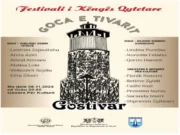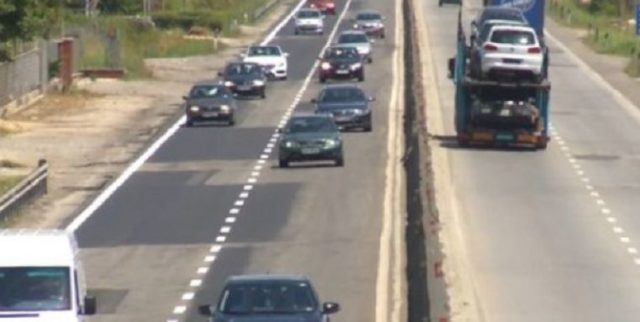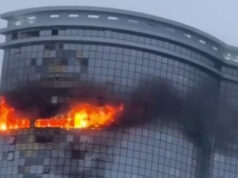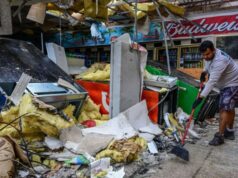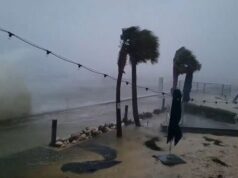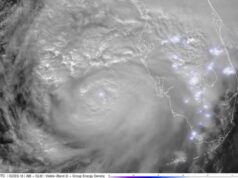The Albanian government is mulling turning the country’s key highway linking the two main cities of Tirana and Durres into a toll road through a concession which apparently does not affect public finances, but sharply increases travel costs for the country’s residents, already facing one of Europe’s highest fuel prices.
The ruling Socialist Party majority says it has received an unsolicited proposal on the upgrade of the current 30-km highway linking Tirana to Durres and the construction of a new 44-km highway from Kashar, just outside Tirana, to Rrogozhina, a hub to southern Albania.
The infrastructure ministry says the unsolicited proposal will be a build-operate-transfer public private partnership which unlike some of the current PPP road projects under way receiving government financial support, will be funded by the concessionaire itself in return for introducing tolls to get back investment and make a profit for a period that could be up to 35 years.
Several key road segments, including a highway linking Albania to Macedonia are being built as part of a €1 billion PPP program under which concessionaires complete the projects using their own funds and financing and the government pays them back in annual instalments for investment and maintenance costs for up to ten years.
The infrastructure ministry says the proposed project envisages extending the current Tirana-Durres highway to a three-lane dual carriageway, turning it into the country’s second toll road after the Albania-Kosovo highway where average tolls of €5 are being charged since mid-September 2018 following protests leading to toll revision for local northeastern Albania residents and discounts for frequent users.
In return, the concessionaire will have to rehabilitate access roads for businesses along the highway and reconstruct the old Tirana-Durres road through Ndoq village, which will both serve as free of charge alternatives to the toll road.
The proposed project also envisages the construction of a Kashar-Rrogozhine highway through a new track in the post-2025 period.
“Under the proposed scheme, all construction costs will be handled by the private concessionaire who will introduce tolls to guarantee the return of investment and make a reasonable profit without affecting the state budget. Citizens will also have the opportunity to use alternative free of charge roads,” says the infrastructure ministry.
The authorities’ reaction came after local media alleged the government will fund the road projects through taxpayer money, the same as it is doing with some controversial PPPs in the public health, road infrastructure and waste management sectors.
In its proposed 2019 budget, the government says the expected investment on the rehabilitation and extension of the Tirana-Durres highway could be up 49 billion lek (€391 mln), while the new Kashar-Rrogozhine highway could cost double, at around 85 billion lek (€675 mln), with total cost for both highway projects at €1 billion, about 7 percent of Albania’s GDP.
The finance ministry says it is still examining the unsolicited proposal by a company which it does not specify and has no decision-making yet on the build-operate-transfer concession that could be awarded for 30 to 35 years.
In case of receiving an initial okay, the concessionaire would receive a bonus for its unsolicited proposal and become an apparent winner, the same as has happened with similar PPPs where favorite companies face little competition at eventual tenders.
However, such a concession contract could also have indirect costs for the Albanian government such as traffic guarantees to secure the company’s return of investment.
According to the IMF, PPPs entail construction, financial, demand, political, force majeure and renegotiation risks and the Albanian government’s legislative threshold of annual payments to concessionaires not exceeding 5 percent of the previous year fiscal revenues is not reliable, reflecting a mix of mandatory and expected payments and worst-case estimates if pre-determined minimum revenue guarantees are triggered such as in the case of toll roads not meeting minimum traffic.
International financial institutions have asked the Albanian government to give up the unsolicited proposal as a procedure that places bidders at unequal position and leads to controversial PPPs with no thorough cost-benefit analysis that could create new arrears undermining the public debt reduction agenda.
Albania’s public debt is already at around 70 percent of the GDP, a high level for the country’s stage of development that places at risk macro-economic stability and much-needed public investment due to high debt servicing costs.
A key corridor
The Tirana-Durres toll road would significantly increase travel costs for all Albanians through a main corridor that is home to about half of the country’s 2.8 million resident population and produces half of the country’s national output.
Due to the huge tax burden levied on oil, Albanians already face one of Europe’s highest fuel prices while struggling with one of the region’s poorest income.
Plans to make the key Tirana-Durres highway a toll road come after the key segment got a facelift through a €600,000 emergency intervention only in late June after having turned into a nightmare for drivers and a cause of road accidents for the previous couple of years.
The World Bank-supported emergency intervention that only repaired damaged layers of asphalt is only considered a temporary solution to Albania’s main 30-km highway which needs deeper intervention to bring to standards.
The main economic corridor of Albania, the 30-km highway dual carriageway connects Tirana and northern Albania to the Durres port, the country’s largest, and is a hub to southern Albania.
Some of the most important businesses and shopping centers operate along it and half of the country GDP is produced there. The highway’s daily traffic flow is estimated at 45,000 vehicles.
Built in the early 2000s, the Tirana-Durres highway was the country’s first major infrastructure work following the early 1990s collapse of the communist regime when private car ownership was banned.
However, high traffic and poor quality construction works at that time and lack of proper maintenance have taken it to bad condition, leading authorities to consider a toll road concession for its upgrade and maintenance.
Albania has one of Europe’s highest death tolls from road accidents with an estimated 15 fatalities per 100,000 inhabitants with poor road condition and careless driving being the main reasons behind such high death toll. About 2,000 road accidents took place last year in Albania, with a death toll of 222, the lowest level for the past six years when data is available./TT



